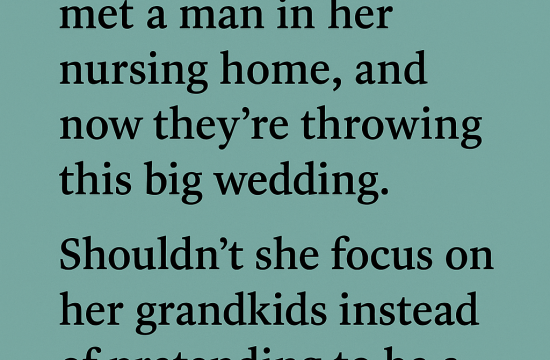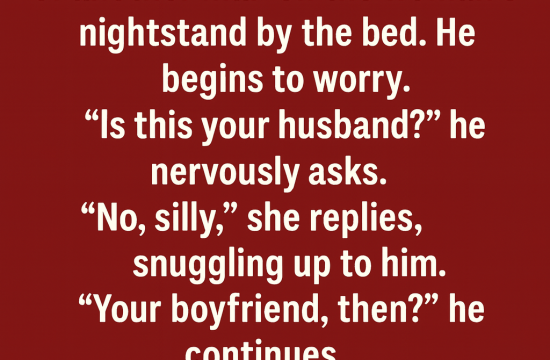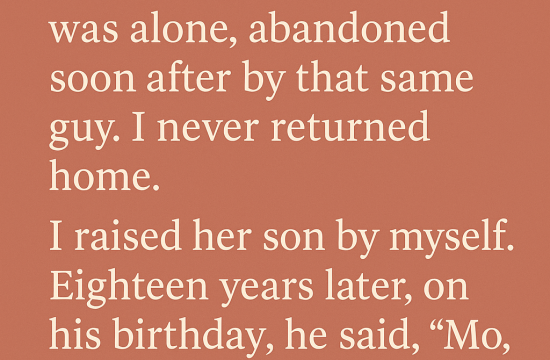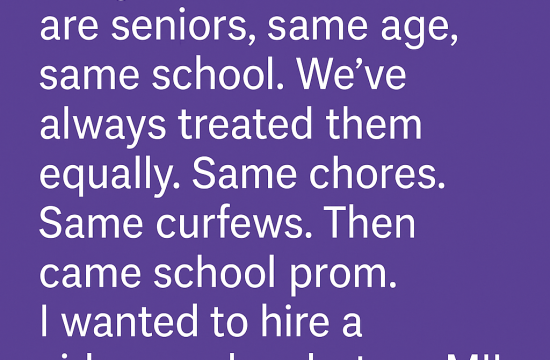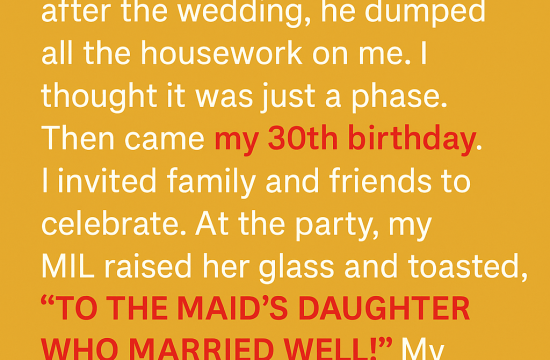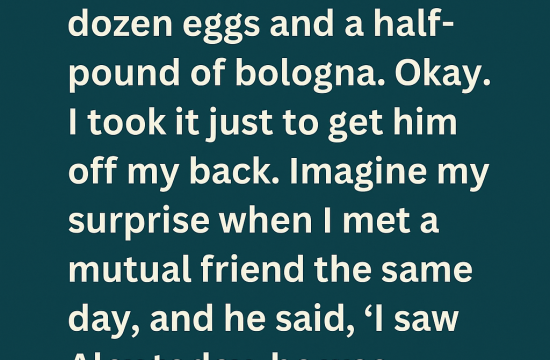My boyfriend’s family wanted to test me. The test included cleaning, cooking, manners—typical “wife material” expectations. I told my family about it, expecting some eye rolls and maybe a sympathetic rant over dinner. Instead, they invited Nishan—my boyfriend—over and told him they’d let me take their test… but only if he agreed to take one first.
He laughed. Thought they were joking. But they weren’t. Not even close.
Here’s what happened.
It all started a few weeks before that dinner. Nishan and I had been together for a little over a year. Things were getting serious—he’d started dropping hints about rings and forever. I was ready. I loved him. But then, in the middle of dinner at our favorite Thai place, he said something that made my stomach turn.
“My mom wants to see if you’re ready,” he said casually, twirling noodles onto his fork. “Like, you know, how you’d handle being part of the family. Wife stuff.”
I blinked. “Wife stuff?”
“Yeah, like… can you cook our traditional dishes, keep a house clean, deal with in-laws. Nothing crazy. Just… a test.”
It hit me like a slap. I’m not lazy or incapable. But the idea of being evaluated—like some kind of applicant for a domestic internship—rubbed me raw. Still, I didn’t lash out. I just nodded and let it stew.
Later, I told my family. I expected mockery, maybe some protective outrage. But instead, my dad leaned back, arms crossed, and said calmly, “Fine. But if their daughter-in-law gets tested, so does their future son-in-law.”
So we invited Nishan over for dinner the following Sunday.
He arrived smiling, holding a bouquet for my mom and a bottle of wine for my dad. My cousins were there too—odd for a quiet family dinner, but this wasn’t an ordinary evening. They came prepared—clipboards and all.
“So,” my Aunt Reem said sweetly as she passed the rice, “we hear you’re giving our Maysa a test. Thought we’d return the favor.”
Nishan looked over at me, eyebrows raised. I just shrugged. “Fair is fair.”
He laughed again. Nervous this time. “What’s your test?”
My brother Samir leaned in. “Well, we thought we’d start with a little empathy challenge. You’re going to help Uncle Bassam with the dishes tonight.”
It would’ve been fine—except Uncle Bassam has arthritis and drops about every third plate. He handed Nishan a soaked sponge and gestured at a leaning tower of greasy pots.
That was just round one.
Next came the Patience Station. He had to sit through my ten-year-old cousin’s “magic show,” complete with nonsensical card tricks and a “disappearing” coin that never actually disappeared.
Then came the big one: Cultural Sensitivity.
My family’s Arab-American. Not ultra-traditional, but proud. My dad pulled out a chess set and said, “You win one game against me—without showing off or losing on purpose—and you pass.”
Nishan blinked. “What does chess have to do with culture?”
“In our house,” my dad said, “you listen, you learn, and you try. You don’t fake it. You don’t perform. You show up, respectfully.”
Nishan lost in six moves.
By the end of the night, he looked like he’d been through a small war. Shirt damp from dishwater, hair slightly frizzy, smelling faintly of cumin and stress.
But he didn’t complain.
In fact, when I was helping my mom pack up leftovers, he pulled me aside.
“That was intense,” he whispered. “But honestly? I kinda needed it.”
I raised an eyebrow. “Needed what? A reality check?”
“No,” he said. “Perspective. I didn’t realize how weird it was to test you without even asking how you felt.”
I softened—for a moment.
Then came the real twist.
The next weekend, his family invited me over for my “test.” I went—not out of obligation, but because I wanted to finish what was started.
His mom—poised and polished, the kind of woman who irons pillowcases—greeted me with a tight smile.
“We thought we’d start with sambusa,” she said, handing me a dough roller.
I smiled. “I made those for Eid last year. Four fillings. Want to see my folding method?”
She blinked. Wasn’t expecting that.
Next was the “spotless kitchen” challenge. I grew up with a mom who cleaned like she was preparing for a royal inspection. I mopped the tile in under ten minutes and reorganized the spice rack in alphabetical order.
Then, she brought out Nishan’s baby blanket.
“Would you know how to care for this properly?”
I held it up. “Wool blend. Hand wash, cold water, line dry. Not that hard.”
She didn’t smile, but she didn’t scowl either.
At the end of the visit, she pulled me aside. “You passed.”
I looked her in the eye. “I wasn’t trying to. I was just being myself.”
Something shifted in her. Maybe not drastically—she’s still meticulous and a little icy—but there was less judgment in her gaze. Maybe even curiosity.
And Nishan? He changed too.
He started showing up for my family. Helped my dad fix the garage door. Brought fresh bread to my aunt after her husband’s surgery. Taught my little cousin how to ride a bike.
One day I asked him, “Was the test really necessary?”
He shook his head. “No. But the wake-up call? Maybe.”
Six months later, we got engaged. Small ceremony. Big family dinner. Both families came together—not as competitors, but as one. And for the first time, it felt right.
Here’s what I learned:
Love shouldn’t feel like an entrance exam. Anyone can pass a test with enough preparation. But real relationships are built in the spaces between tests—where respect, humility, and consistency live.
If someone wants to test you, make sure they’re willing to be tested too. And if they’re not? That tells you everything you need to know.





